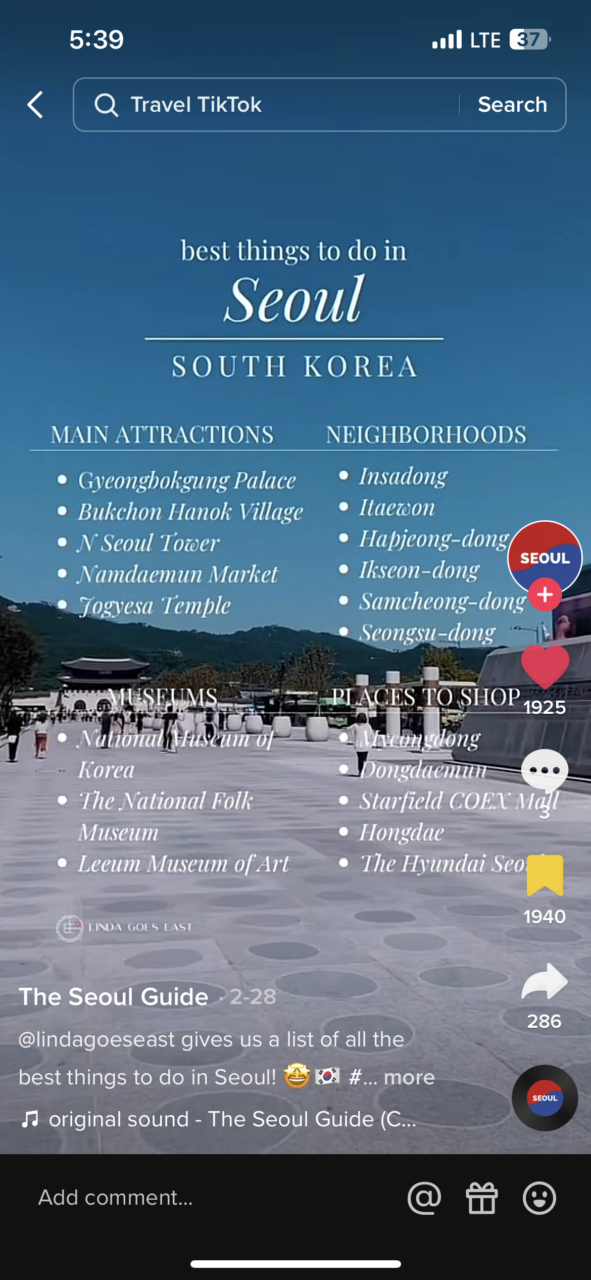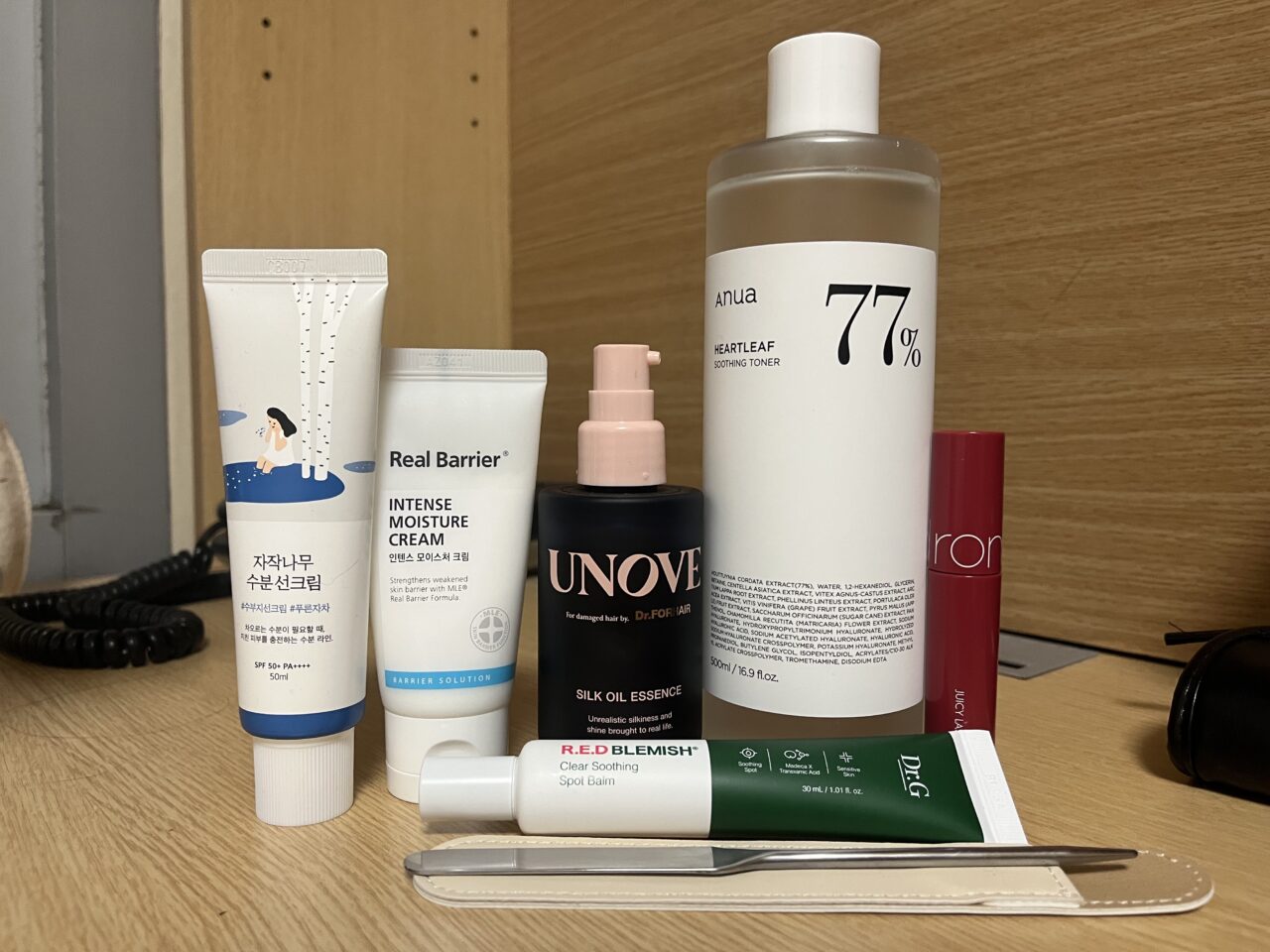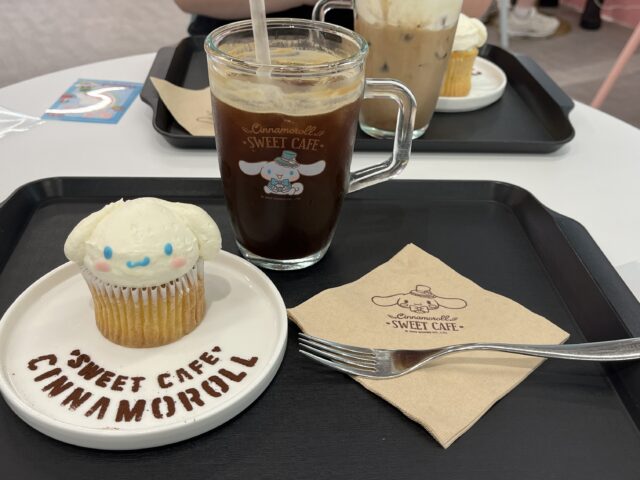The hustle and bustle of Seoul can be overwhelming for exchange students who don’t know where to start. To my surprise, fun activities, cute cafes, and useful advice started appearing right in front of my nose as I scrolled through my TikTok ‘For You’ page (FYP). After I landed, I kept getting videos of free activities, how to say important phrases in Korean, and other relevant travel advice for Korea. TikTok is embarrassingly my number one form of entertainment, so instinctively I saved these videos in organized ‘collections’ on the app. As I started looking for things to do, I found myself referring to these videos. Coming to a vast city without any knowledgeable locals can be overwhelming, so this guidance encouraged me to delve into what Seoul has to offer.

TikTok feels so effective at sharing niche advice because not just popular content creators, but also regular people can post their story times, cute finds, and recommendations. This feels much more personal and trustworthy than an advertisement or long YouTube video, though it’s possible that these videos could be unknowingly sponsored, too. The short video style and seemingly endless stream of content also makes for an excessive amount of information to be delivered in a short amount of time.
While I haven’t gone to the exact cafe I see in a TikTok, I have gone to neighborhoods that my FYP suggested and started exploring from there. Now that all of Seoul is at my fingertips thanks to the ease of the public transportation systems, I can potentially experience all of TikTok’s suggestions.

On this day, I saw a TikTok suggesting to go to Sinchon, the neighborhood where Ewha University is, and so my friend and I spontaneously decided to go check it out. It ended up being really fun and pretty and now we have a nice memory inspired by a singular TikTok video.
TikTok can get a bad reputation for being addictive, inducing toxic beauty standards, and other controversies, but it has been exceedingly helpful for traveling. In my life, I want to travel a lot. So I always save niche travel advice for other countries in their respective folders too. These videos inspire me to travel more and make me excited to go see new places.
So far, no one on TikTok has recommended a place that I’ve had a bad experience with yet, but I try to be cautious regardless. When booking a hair appointment or other higher-priced attraction, I would do additional research beyond TikTok.
While social media can effectively share interesting destinations and activities, old-fashioned word-of-mouth advice is effective, too. Talking to people that have been here longer enables me to find less popular, more intimate spots that I might’ve never found. I also refer to reviews on Naver Maps, Happy Cow to find vegan eats, and occasionally Instagram or YouTube for more specific advice or unique businesses too. Though, just wandering around is fun, too.
TikTok also educated me about popular Korean skincare products. I knew I wanted to refresh my skincare routine in Korea because of their infamous skincare technology, but the first time I walked into the popular skincare and beauty store Olive Young, I was too overwhelmed to buy anything. When I see a product review on my FYP that interests me, I’ll screenshot it and compare it to other product reviews, consider what I want each product to do to my skin, and then purchase one product at a time so I can easily see how each product makes my skin change. My skin (and hair) has never been more radiant thanks to the TikTok recommendations.

Adrienne Povey, University of Massachusetts Amherst, is studying abroad in South Korea with TEAN.







